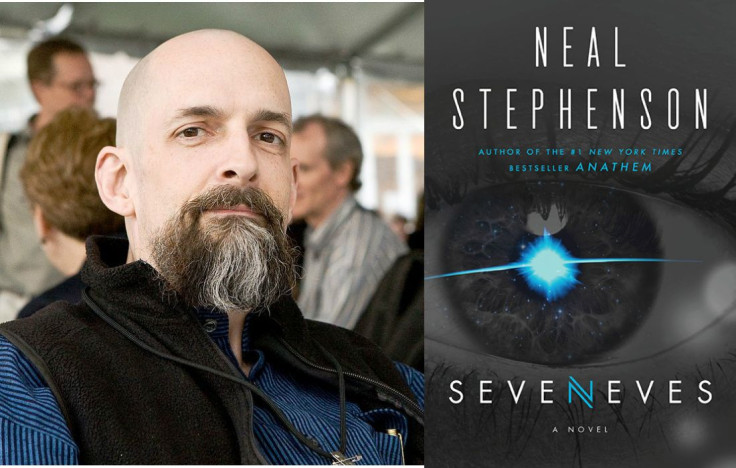Neal Stephenson's 'Seveneves' Has Finally Arrived. What We Learned About The Future From The Biggest Sci-Fi Novel Of 2015 (Spoiler Free)

Neal Stephenson knows how to go big. “Seveneves,” the science fiction author's latest novel, spends nearly 900 pages telling an epic story about humanity's quest for survival after an explosion on the moon incinerates Earth. That plot might sound, well, insane, but what's truly disturbing about the book is just how much the technology in Stephenson's world resembles the technology in our own.
Stephenson has developed a rabid fan base over the last two decades by somehow fitting dense, technical themes -- cryptography, surveillance, currency, you name it -- into more than a dozen novels. Already ferocious anticipation for “Seveneves,” out May 19, ramped up again when Stephenson posted the first 26 pages of the book online, luring fans in immediately with the opening line, “The moon blew up without warning and for no apparent reason.” Humanity will be wiped out within two years, the story goes, unless a small group of astronauts and scientists can survive on the International Space Station long enough to repopulate the planet they had no choice but to leave behind.
Worried about those predictions coming true? If “Seveneves” is any indication, maybe it wouldn't be the worst idea to at least start hoarding some water.
Here's what else we learned about the future (spoiler free):
Humanity needs to invest in asteroids
Uber rich earthlings are already investing in strategies that aim to extract precious metals – iron, cobalt, platinum and others – from asteroids flying in the inner solar system. President Obama knows it too, previously requesting $17.7 billion in funding for NASA to capture and relocate an asteroid.
Imagine how much more valuable those resources would be if humans didn’t already have resources on Earth. The presence of ice, water, metal and other essential minerals on the “Seveneves” space station actually mean the difference between humans living or dying. Things get to a slow start, though, because of the crew’s unfamiliarity with how exactly they’re supposed to contain a massive rock recorded to be traveling at 11,000 miles per hour.
Social media will be essential in space
Sure, hellfire does rain down upon Earth and wipes out billions of people at the beginning of “Seveneves.” But that doesn’t mean survivors can’t still look at each other’s photos and leave passive aggressive comments on “Spacebook.” But it’s more than the usual creeping that goes on in “Seveneves.” The Facebook-inspired program becomes a hub of communication for all human communication, including a place for technical advice, emotional support and, yes, stalking former lovers.
Women will be more essential to humanity than men
Men really just aren't that important when it comes to preserving what's left of the human race. They're an essential part of the reproduction process, sure, but Stephenson writes that women get along better under stressful conditions and that their smaller frames make it possible to send more to the cramped space station. Oh yeah, and they can have babies. Here's a snippet from halfway through the book.
“As well, there was an understanding, widely shared but rarely spoken of, that men we not the scarce resource. Women – to be specific, healthy, functional wombs – were. Acting on that belief, or perhaps just electing a more socially constructive form of suicide, men continued volunteering for hazard duty, instructively herding the women toward the protected interior spaces of the ship; and when the women objected to it, as some did, they were apt to be shutdown by the simple, hard-to-argue-with assertion that their lives and health had to be preserved at all costs.”
Neil deGrasse Tyson will be important. Like, really important.
Imagine the global freakout that'd follow news that the moon exploded. Then think about how much worse things would get if everyone on the planet simultaneously found out the world would end in two years' time. Who would the international community turn to in such a crisis? Stephenson's pick is Doc Dubois, a character admittedly inspired by the real-life cosmologist and science popularizer we call Neil deGrasse Tyson. Tyson would not only explain the situation that's led to the end of the world, but try to sooth the world's population by explaining how human beings can avoid extinction when Earth morphs into a ball of fire.
© Copyright IBTimes 2025. All rights reserved.




















